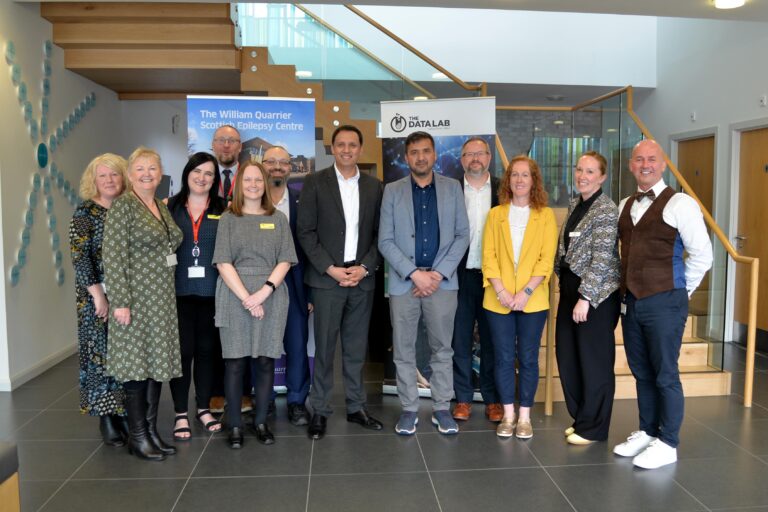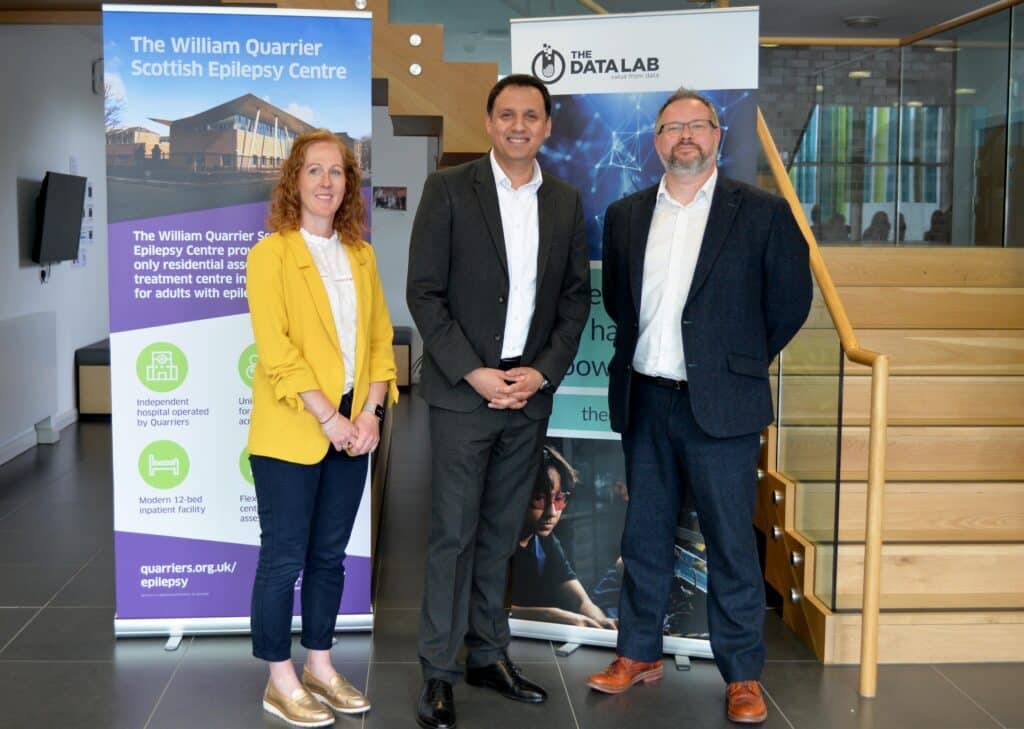
Scottish Labour leader Anas Sarwar had the opportunity to view a pioneering AI software solution that could transform the diagnosis and treatment of epilepsy during his visit to the William Quarriers Scottish Epilepsy Centre (WQSEC).
The research was undertaken at Glasgow Caledonian University (GCU), thanks to funding from The Data Lab and the William Quarriers Scottish Epilepsy Centre.
Led by Professor Hadi Larijani, Director of GCU’s SMART Technology Research Centre, the researchers created software that will save clinical specialists valuable time in diagnosing patients who are believed to suffer from epilepsy and give clinicians an all-important warning ahead of an epileptic seizure.
“Epilepsy diagnosis is a very time-consuming task. Currently, a specialist clinician sits in front of a monitor with live or saved feeds of video footage, with synchronised electroencephalography (EEG) and electrocardiogram (ECG) signals and must manually identify any potential epileptic seizures from the data feeds. We have developed a decision-support tool that could help concurrently monitor all of the patients in the centre, thereby improving both the quality and efficiency of diagnosis, triggering an alarm or alert for seizure cases. If successful, this approach could transform the diagnosis and treatment of patients in Scotland and beyond.”
Professor Hadi Larijani, Director of GCU’s SMART Technology Research Centre
The first phase of the project ‘trained’ the artificial intelligence software to identify a seizure for the clinician to review.
Professor Larijani added:
“This approach could be applied to stroke patients and those with other neurological diseases, as the vast majority of clinical decisions are made through the manual review of patient data.”
Mr Sarwar enjoyed a tour of the hospital facilities and a demonstration of how the AI project can learn from historical data and make the process of identifying a seizure timelier. He spoke to Elaine McAllister who has experienced the services available at WQSEC and was shown potential plans to develop an advanced wireless EEG headset to have the software embedded for remote/home monitoring.
“This is an exciting example of how technology can transform healthcare.
“I pay tribute to the team at William Quarriers Scottish Epilepsy Centre, the researchers at Glasgow Caledonian University, and the innovators at The Data Lab who have made this solution a reality.
“AI will never replace person-centred healthcare, but new tools like this can revolutionise the experience for patients.
“Scotland can be at the forefront of the technological revolution, which is why I am so passionate about ensuring that our skills sector is fit for the future, and we have an economy that fosters enterprise and innovation.”
Anas Sarwar, Scottish Labour leader and MSP for Glasgow

“We have already seen giant steps taken to use data and AI to drive improvements in healthcare, diagnosis and treatment of disease and patient outcomes.
Brian Hills, CEO of The Data Lab, said:
“Providing organisations with the opportunity to collaborate with universities is an incredibly effective way of developing and transferring cutting-edge technology between academia and industry.
“The research, co-funded by The Data Lab in partnership with the William Quarrier Epilepsy Centre through our Collaborative Innovation programme, reinforces the importance of funding research within health and social care, which has benefits for not only patients in William Quarrier Epilepsy Centre but could revolutionise epilepsy diagnoses across the NHS.”
The research team included PhD student Syed Yaseen Shah, MSc student and Quarriers IT Infrastructure Manager John McMaster and consultants from William Quarries Epilepsy Centre.

Leave a Reply